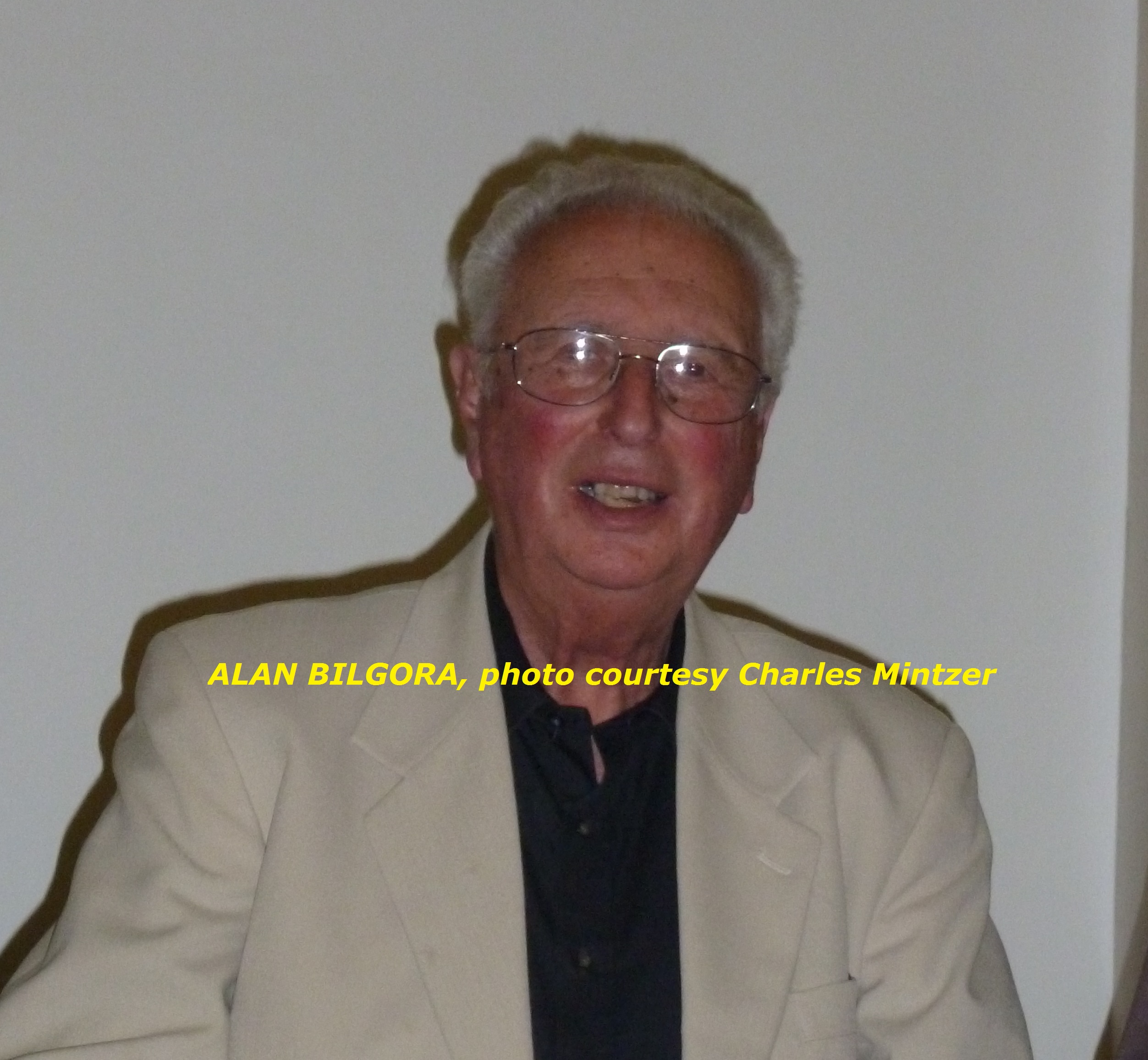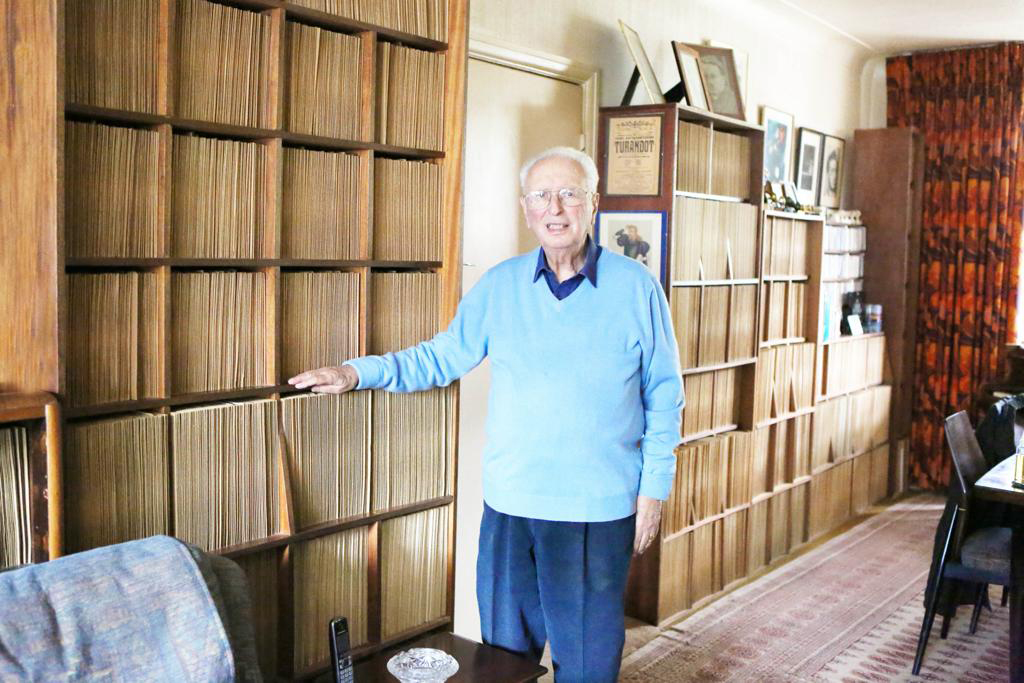
 (Alan in front of his record collection, courtesy Larry Lustig)
(Alan in front of his record collection, courtesy Larry Lustig)ALAN BILGORA (London 9 September 1929 – London 13 May 2021)

 (Alan in front of his record collection, courtesy Larry Lustig)
(Alan in front of his record collection, courtesy Larry Lustig)
It is my sad duty to report the passing of Alan Bilgora, one of the best known and respected collectors. Alan was renowned internationally as a writer and an expert on the tenor voice.
He was born in Newington Green in North London. It was soon obvious that he had talent as a singer as, at the age of six, he started singing in the Dalston Synagogue Choir under the direction of the famous Cantor Jacob Kousevitsky.
Following National Service in the Royal Air Force, he joined the Toynbee Opera Group, where he took leading roles in works by Verdi, Smetana and Mozart. He also specialised in
Gilbert and Sullivan roles as a member of the ‘Old Stepnians’ Operatic Society. During this period he studied voice with Robert McGovern, who had been a pupil of Giulio Crimi.
For almost four decades he was a member of the famous London Jewish Male Choir, acting as chorister, Secretary, Vice Chairman and Chairman. The Choir regularly highlighted the special talents of its members and often featured Alan’s high-lying tenor voice in solos. With the Choir he toured many U.K. auditoria and abroad to Israel, the U.S., Germany and Ireland. He participated in concerts
for the BBC and appeared on television. His voice can also be heard in the Choir and as a soloist on LPs featuring the Choir.
Click here to listen to Alan's singing
Alan’s greatest passion was collecting recordings of the tenor voice, both of the past and present. Over more than 70 years of collecting he gradually put together one of the most comprehensive collections of 78 rpm recordings of singers of the past. His collecting covered not only the grandi nomi but also less celebrated artists. While his peers rejected those singers whose names were unfamiliar, Alan would make a point of collecting them. He derived particular pleasure in discovering talented singers who were not known to others and would share these finds with friends during regular record sessions at his home.
His great enthusiasm remained undiminished almost to the end. Even in late 2020, he delighted in finding the only Fonotipia recording of the little-known tenor Giuseppe Reschiglian. Alan was a founder member of the Recorded Vocal Art Society since its inception in 1953, and became its Deputy Chairman. Members would look forward to his annual talk, which was always an opportunity to hear new voices. With his special expertise and a singer’s understanding of vocal technique, he could convey the special merits of the recordings and of the singers whom he had selected to play.
Alan was also invited on to the board of the Historic Singers Trust, of which he became Vice Chairman, often contributing notes to its release of Historic Masters pressings.
His contributions to The Record Collector were many: comparative notes on a singer’s recordings, biographies, general articles and record and book reviews.
One needs only to search for his name in the Index to appreciate the sheer quantity and scope of his writings. He was my obvious ‘go to’ tenor expert and any request to write was always graciously accepted. He was an editor’s dream, always responding with copy within a few days.
For his friends, Alan’s most endearing quality was his great humanity, which he selflessly extended to everyone around him. He would always be the first to help others, whether it was to offer to drive a guest to the train station or collect a visitor from their hotel. For many years he conveyed three or four friends to RVAS meetings and concerts and would diligently drive them home again after the meeting. He unstintingly gave of himself to anyone who needed his help, often at great personal inconvenience. That humanity was even manifest in his collecting. He once declared that he found something to admire in almost every
record, “I make a point of looking for that one special note, that memorable phrase in every disc.”
Alan contributed so much to our collecting hobby and helped shape its evolution and direction. I am sure that his many friends will join me in expressing sincere condolences to his wife Shirley and his three daughters Ema, Kathryn and Judy. He will be much missed and the collecting world will be the poorer for his passing.
Larry Lustig